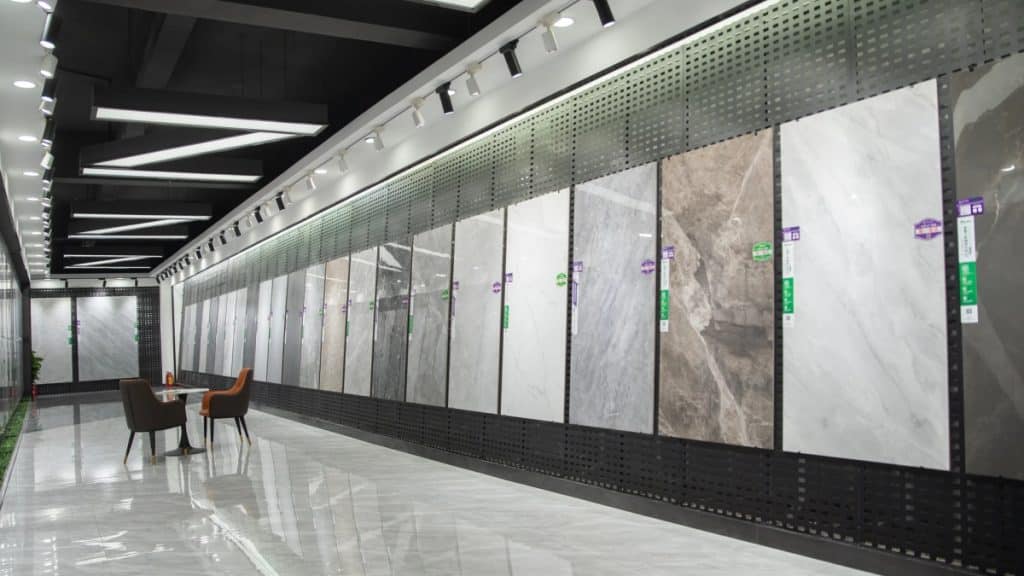Tile manufacturing has come a long way from its humble beginnings. What started as a craft relying heavily on manual labor and rudimentary tools has evolved into a high-tech industry that uses advanced machinery, cutting-edge techniques, and sustainable practices. This transformation has not only enhanced the quality and variety of tiles available today but has also made them more accessible to homeowners and businesses alike. Let’s delve into the fascinating journey of tile manufacturing and the innovations shaping its future.
A Brief History of Tile Manufacturing
The origins of tile manufacturing can be traced back to ancient civilizations. Cultures like the Mesopotamians and Egyptians were among the first to create tiles, primarily for decorative purposes. These early tiles were hand-shaped from clay and then baked in rudimentary kilns. The addition of glazes introduced vibrant colors and patterns, elevating tiles from functional building materials to works of art.
During the Middle Ages, tile production flourished in Europe, with intricate designs adorning churches, palaces, and public spaces. The Industrial Revolution in the 18th and 19th centuries marked a turning point, as mechanization enabled mass production. This shift made tiles more affordable and accessible, laying the groundwork for their widespread use in modern architecture.
Modern Techniques in Tile Manufacturing
Today’s tile manufacturing process is a blend of traditional craftsmanship and innovative technology. Here’s an overview of the key techniques that define modern production:
1. Advanced Material Processing
- Raw Materials: The primary materials used in tile production are clay, feldspar, quartz, and water. These components are carefully blended to achieve the desired properties.
- Atomization: This process involves spraying the liquid clay mixture into a heated chamber, where it transforms into a fine powder. The powder is then pressed into molds to form the tiles.
2. High-Pressure Pressing
Modern tiles are created using high-pressure presses that compact the material to ensure density and strength. This step is crucial for producing tiles that can withstand heavy use and resist cracking.
3. Firing and Glazing
- Firing: Tiles are baked in kilns at temperatures exceeding 1,200°C. This process hardens the tiles and enhances their durability.
- Glazing: A layer of glaze is applied to the tile surface to create a smooth, glossy finish or a textured matte appearance. Glazes also add color and protect tiles from stains and water damage.
4. Digital Printing
One of the most significant advancements in tile manufacturing is digital printing. This technology allows for intricate patterns, realistic textures, and photographic-quality images to be printed directly onto tiles. Whether replicating the look of natural stone, wood, or abstract designs, digital printing has revolutionized tile aesthetics.
5. Laser Cutting and Water Jet Technology
To achieve precise shapes and sizes, manufacturers use laser cutters and water jet machines. These tools enable the creation of custom designs and intricate patterns, expanding the possibilities for architectural and decorative applications.
Innovations Driving the Industry Forward
The tile manufacturing industry continues to evolve, driven by a focus on sustainability, efficiency, and design innovation. Some of the latest trends and advancements include:
1. Eco-Friendly Practices
As environmental concerns grow, manufacturers are adopting sustainable practices, such as:
- Recycling: Many factories recycle waste materials from production and incorporate recycled content into new tiles.
- Energy Efficiency: Modern kilns and machinery are designed to minimize energy consumption.
- Water Conservation: Advanced water recycling systems reduce the amount of freshwater needed in production.
2. Large-Format Tiles
Advances in manufacturing techniques have made it possible to produce large-format tiles that offer seamless looks and fewer grout lines. These tiles are popular for creating sleek, modern interiors and expansive outdoor spaces.
3. Thin Tiles
Thin tiles, also known as slim tiles, are gaining traction for their lightweight design and ease of installation. Despite their reduced thickness, these tiles are incredibly strong and versatile.
4. Anti-Bacterial and Self-Cleaning Tiles
Innovations in glazing technology have led to the development of tiles with anti-bacterial properties and self-cleaning capabilities. These tiles are ideal for hospitals, kitchens, and other hygiene-sensitive environments.
Benefits of Modern Tile Manufacturing
The advancements in tile manufacturing have resulted in several benefits for consumers and businesses alike:
- Increased Variety: With digital printing and advanced glazing techniques, manufacturers can offer an unparalleled range of designs, colors, and textures.
- Enhanced Durability: Modern tiles are designed to withstand heavy use, moisture, and temperature fluctuations, making them suitable for a wide range of applications.
- Customizability: Advanced cutting and printing technologies allow for personalized designs that cater to unique tastes and requirements.
- Affordability: Mass production and efficient manufacturing processes have made high-quality tiles more accessible to a broader audience.
Why Choose Roma Tile of New York?
Roma Tile of New York stands out as a trusted provider of retail and wholesale tile options. Their selection reflects the best of modern manufacturing, offering durable, stylish, and versatile tiles for any project. With a commitment to quality and customer satisfaction, Roma Tile provides expert guidance to help you find the perfect tiles for your needs.
Conclusion
The evolution of tile manufacturing is a testament to human ingenuity and the pursuit of perfection. From its origins in ancient civilizations to the high-tech innovations of today, tile production has consistently pushed the boundaries of design and functionality. Whether you’re looking for classic elegance or cutting-edge styles, modern tiles offer endless possibilities for transforming spaces. Explore the diverse range of retail and wholesale tile options at Roma Tile of New York and discover how the latest manufacturing advancements can bring your vision to life.
